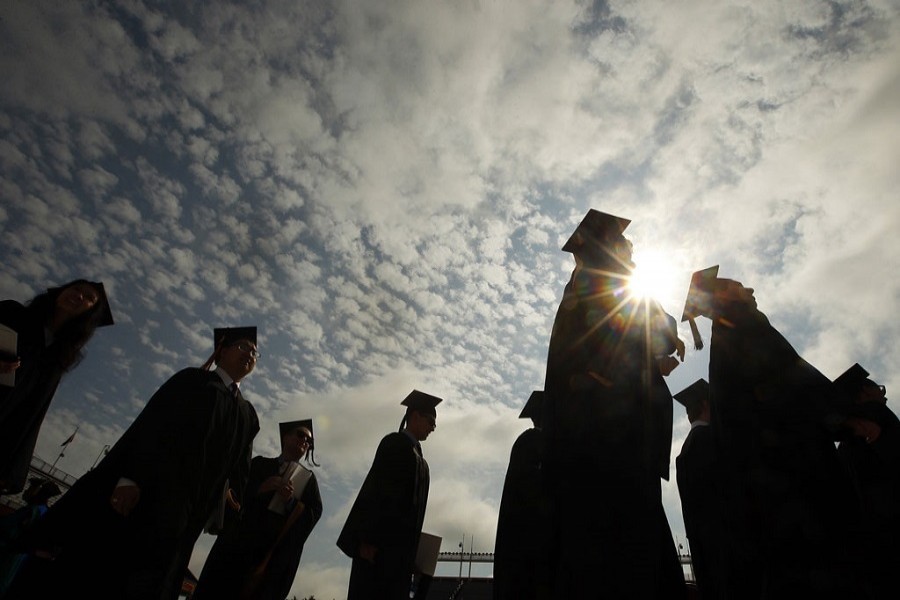It's no other person than the country's Prime Minister who has lately alerted the people to the coming 'second wave' of coronavirus. She has sounded the alarm on several occasions. Given the disruptions caused by the pandemic for over 8 months to almost every sector of the country, the spectre of a feared second bout will make people edgy. They include stakeholders in business and commerce, government functionaries, people in industries, and, especially, the quarters related to the nation's socio-economic uplift. However, the segment which has already started bracing for another indefinite spell of exercise in futilities is the students. A conclusion has already been drawn to the effect that it was the education sector which bore the largest brunt of the ongoing corona pandemic. Few countries in the world were spared the corona-prompted jolts in their education, including closures, partial openings etc in the recent spate of the Covid-19. In the developed countries, the replacement of traditional classes with the online ones has become part of the new normal.
Due mainly to infrastructural weaknesses, online school classes in Bangladesh have failed to get off the ground satisfactorily --- even in the large cities including the capital. In the villages these 'smart classes' remain a pipedream. Except a handful of private schools and colleges and universities attended by students from affluent families, online educational activities still remain off-limits to the general students. Against this backdrop, the plight of the universities, including all the public ones, stands out with their utter inability to introduce online classes. With a laidback attitude taking root in the higher education sector, both the students and academics are literally waiting warily fora real difficult time. Many have started viewing the imminent future as one of the most disastrous phases in the country's history.
The corona pandemic struck the country, its economy and, especially, the education sector at a time when all-round propitious signs started becoming evident. With the nation's GDP growth rate basking in a comfortable zone, the pilots of its future growth, students of higher education, were all set to chart a fresh course. By that time the University of Dhaka had been free of its age-old curse of sessions jam. Except a few sporadic fracas and feuds stokingdistraction, the average students had already been back to their academic activities. To the woes of the nation, just when the country began aspiring to join the middle-income countries' group, it found itself on the path of the global Covid-19 pandemic.
The pandemic devastations that had struck the world in the past had a lot to do with nature. The present one originated in some deviant human lifestyles; in course of time many other influences were sucked into it. The result proved a cataclysm for many developing nations. Had the pandemic not struck Bangladesh all of a sudden, catching it unawares, the higher education sector in the country would have been able to make some remarkable strides. Thanks to the pandemic's invasion, a great number of mega economic projects and programmes had to be put on hold or abandoned. With the education sector finding itself stuck in the shutdown deadlock, a vital source of combined national strength had eventually been made to go to the waste. It hasn't taken time for a dreadful aspect of this imbroglio to plague society.
The psychological fallout became evident in the anxiety-ridden faces of the learners and their parents. The university students dominated the scenario. Many were at the concluding phases of their student careers, some focused on their crucial middle segment, while a lot of sophomores were busy choosing the fields of their choice. All this proved a dream broken to pieces by the pandemic disaster.
The indefinitely long period of being in a void has yet to show any signs of disappearing. The pandemic is still playing hide-and-seek with the younger generation throughout the globe. Bangladesh is no exception. With the Damocles' Sword of a second wave of the pandemic dangling overhead, and the academic closures extended further, it's the university students who have been made to brace for the inevitable --- unemployment. Breaking with the distant past when landing a tolerably prestigious employment remained mostly elusive, the job market had recently begun turning quite accessible. Widespread unemployment among the graduate and post-graduate university students had marked a sharp decline. Apart from well-paid jobs at myriad local and foreign corporate houses, banks and industries, there were colleges inviting students to join their teaching staff.
Alongside government colleges, where teaching jobs required qualifying in the civil service exams, many university graduates picked the teaching profession at private colleges. Most of them being monthly payment order (MPO)-listed institutions, payments and financial benefits at the private colleges attracted a lot of students. However, the major destination of the university-educated students turned out to be sitting for the competitive examinations. Those who finally qualified in the exams and the allied tests had found a wide door open to the vast area of bureaucratic jobs. Prior to the start of the pandemic's assault in March, hundreds of young BCS (Bangladesh Civil Service) officers were found manning government offices. Lots of others were taking preparations to join their posts upon completion of training and orientation programmes. Just at that time a bolt came from the blue. It was Covid-19.
Given the pandemic simmering in many parts of the country and its being reportedly poised to strike the land once again, the prospects for landing satisfactory jobs by youths continue dimming. Both the public and private universities remain closed for nearly an indefinite period. With the students taking the advantage of online classes at a handful of few private universities, they might discover themselves a little ahead of the public university students. But in a broader appraisal, students enrolled in higher studies in the country await a common fate: a plethora of uncertainties spawned by the pandemic and its impacts.


